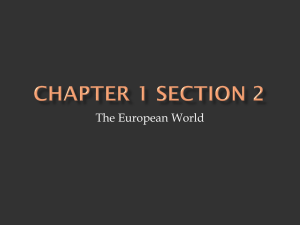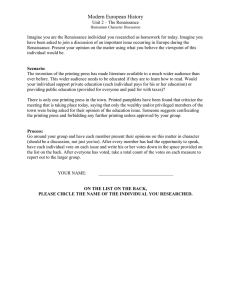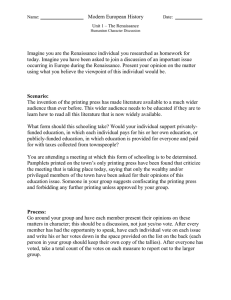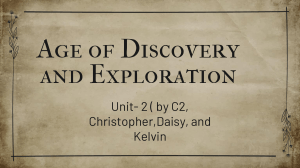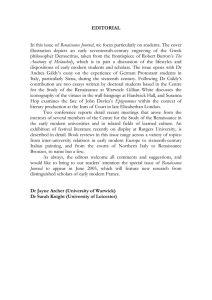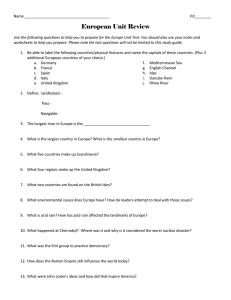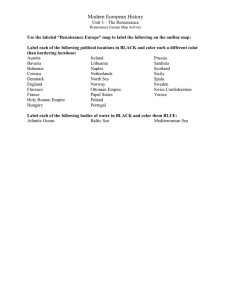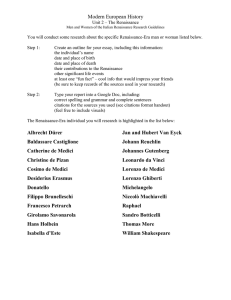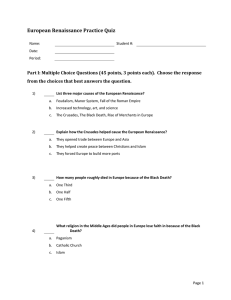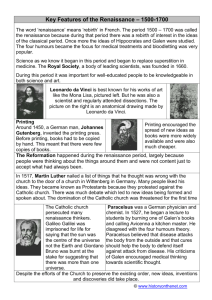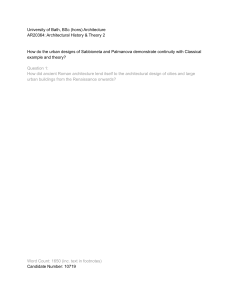THE RENAISSANCE
advertisement
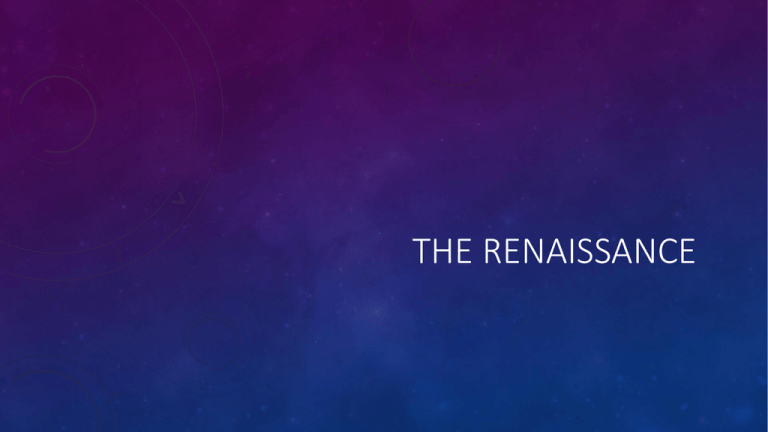
THE RENAISSANCE WHAT WAS IT? • Altered how Europeans would view themselves and world • 1300s – 1600s • Renaissance meaning • Rebirth • Philosophical and artistic movement • Medieval Scholars had studied ancient history • tried to bring everything they learned into harmony with Christian Teachings • Era when the movement flourished • A new emphasis on the Power of Human Reason developed THE RENAISSANCE BEGAN IN ITALY - WHY? • Reminders of Roman glory – Ruins, Writings, Art etc. • Scholars preserved Greek and Roman learning • Trade helped Italians learn about Arab and Africa achievements in science and medicine • Small group with money, big impact • Wealth spreads throughout cities • Florence, Medici family: bankers than rulers of city-state • Lorenzo de Medici: patron of the arts • Mantua, Isabella d’Este: fills palace with paintings and sculptures of finest Renaissance artists. THE PRINTING PRESS - WHAT WAS IT? • How were books copied/printed before? • Scribes were not happy • Some people liked hand-copied manuscripts better • Chinese Block Printing • In 1450, Gutenberg became the first European to use moveable type to print books • The bible - the first book he copied • Books can be massed produced • Thus becoming cheaper and affordable to more people • Books can be published in regional languages • Vernacular – common man’s language • Thus they can read the Bible without the priest’s interpretation • People have their own interpretation and begin to challenge the church, the role of priests is slowly changing • The impact of the Printing Press did not slow down • By 1475 printing presses operated in England, France, Germany, Italy and several other European Nations • This help spread new Humanist ideas to a large audience quickly PHILOSOPHIES OF THE ERA • Humanists: • People who specialized in either Greek and Roman literature to study grammar, history, poetry, and rhetoric • Humanism is: • an intellectual movement that focused on human potential and achievements • Studied classical manuscripts • Many Catholics: • Remain devote Catholics Shakespeare 1564 - 1616 • Stands out as leading literary figure of the time • His ability to transform well-known stories into dramatic masterpieces was one of his great qualities • Many famous works, still impacts modern writers/actors/etc. QUICK SUMMARY: • Focus was on the individual, fame, fortune, legacy, make money and spend money • Shift from a focus on the spiritual to the worldly • Man was to enjoy his time on earth but still be a good Catholic • This shift was reflected in the study of the humanities and art • Due to an increase of trade, a middle class begins to emerge • Cities become bigger and we see a small shift from agrarian to a trading society • Cities nurture the Renaissance • Slowly expands northward, continues to develop and include new ideas
